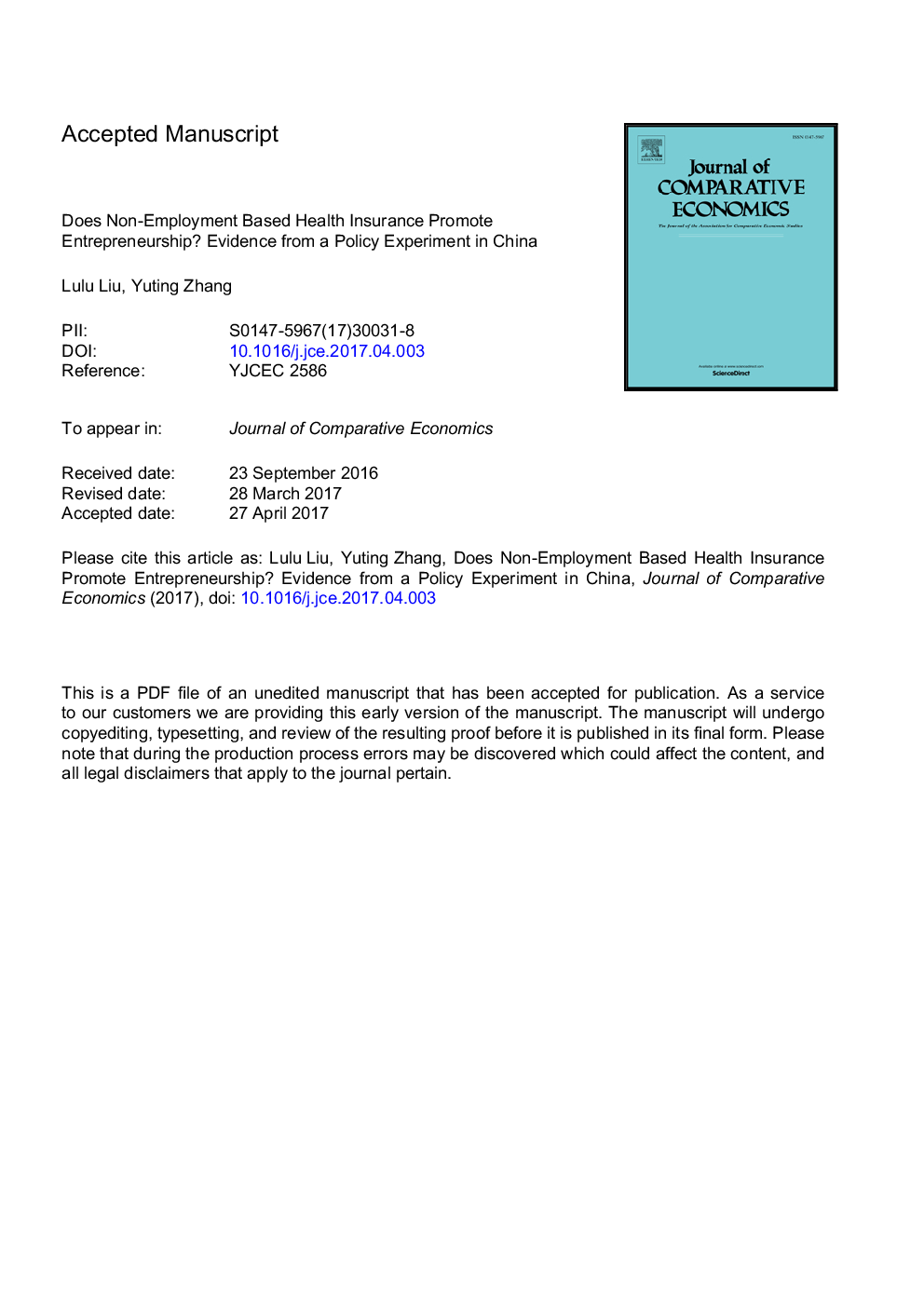| Article ID | Journal | Published Year | Pages | File Type |
|---|---|---|---|---|
| 7356924 | Journal of Comparative Economics | 2018 | 39 Pages |
Abstract
Previous researchers have shown that employment-based health insurance lowers job mobility and deters entrepreneurship. The Urban Resident Basic Medical Insurance (URBMI) program, piloted in 2007 in China and fully established in 2009, offers health insurance to about 271 million urban residents without formal employment. Before the implementation of URBMI, most urban residents obtained health insurance through their employers, and therefore a large number of unemployed and self-employed individuals were uninsured. Thus, URBMI creates a new insurance option that does not depend on formal employment and may promote entrepreneurship. We take advantage of this policy change to evaluate the effect of URBMI on self-employment. Using 2000-2011 data from the China Health and Nutrition Survey and a difference-in-differences approach with propensity score weighting, we found that URBMI increased self-employment rate by at least 8.73% for the overall population. The result was mainly driven by the URBMI's impact on unhealthy workers, individuals with 12 years of schooling or less, and workers above 30 years old.
Related Topics
Social Sciences and Humanities
Economics, Econometrics and Finance
Economics and Econometrics
Authors
Lulu Liu, Yuting Zhang,
